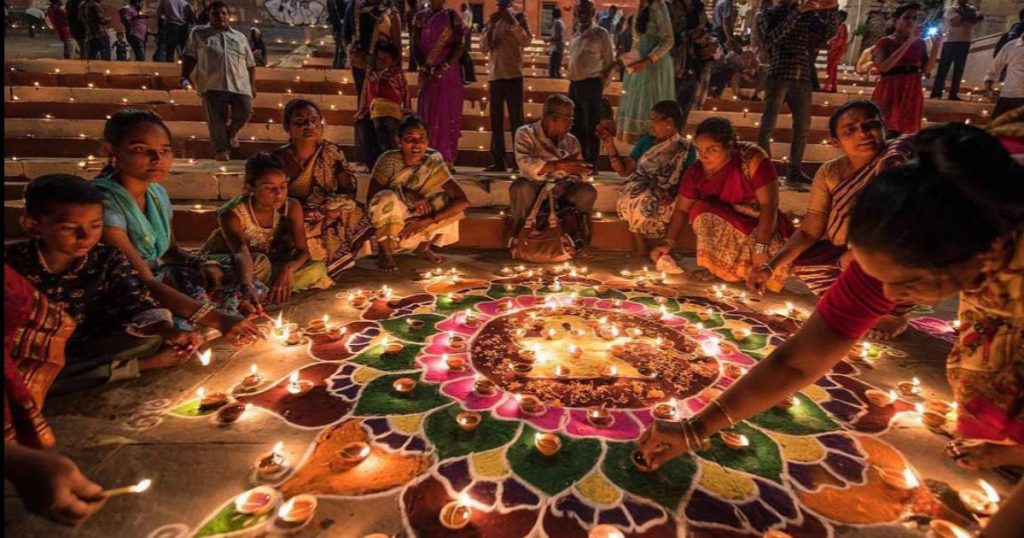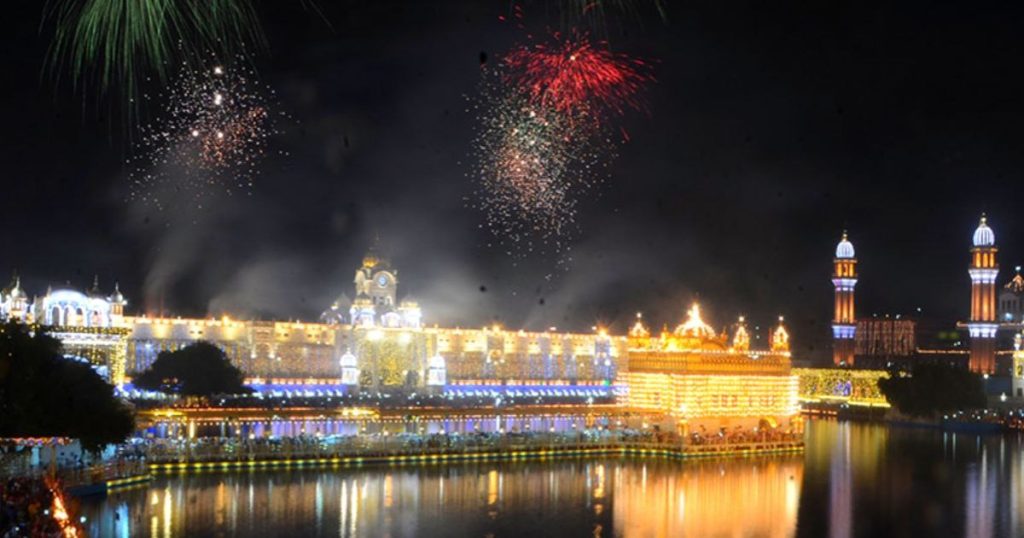Diwali is all about joy, light, fireworks, and festivity. Do you know about the five days celebrations? Come on…. Let’s dive into our rich culture, a pool of joy and full of celebration.
Names And Relevance Of Each Day Of Diwali
Diwali is a five-day festival marked by prayer, fireworks, family gatherings, feasts, and charity giving. In 2022, it began on October 22nd, with the main celebration on October 24th.
The first day, known as Dhanteras, is devoted to Goddess Lakshmi and is dedicated to cleaning homes and purchasing jewelry or utensils, and worship to God.

The second day called Naraka Chaturdashi marks the death of the demon king “Narakasura” by Lord Krishna. Also called Chhoti Diwali.
The third day is the main day of Diwali celebrations. People worship and offer prayers to Lord Ganesha, the foremost of all Hindu Gods representing good luck, and Goddess Lakshmi, representing wealth and prosperity to seek their blessings. Today, still Diwali is considered the first day of the financial new year for Indian businesses.
The fourth day of Diwali is dedicated to Govardhan Puja or Annakoot. According to Bhagavata Purana, Lord Krishna lifted Govardhan Mountain to provide shelter to the villagers of Vrindavan from heavy rains. Since then, devotees offer worship to Krishna as a mark of gratitude and to renew their faith in him.
The fifth day is called Bhai Dooj. On this day, sisters pray for their brothers to have long and happy lives, typically a day to honor one’s siblings.
Different Religion, Different Narratives
Diwali coincides with a new harvest and new year celebrations for many. It is also widely observed among Jains, Sikhs, Buddhists, and its diaspora which has its historical narrative.

For Sikhs, whose religion arose in the late 15th century, observe Bandi Chhor Divas, which coincides with Diwali, and commemorates the release of the sixth guru Hargobind in 1619 from Gwalior Fort by Mughal emperor Jahangir.
Jains, whose ancient religion dates back to the middle of the sixth century B.C., the festival commemorates the enlightenment (Nirvana) and liberation (moksha) from the cycle of life and death (samsara) of Lord Mahavira, the last Jain Tirthankaras.
For Buddhists, whose religion emerged in the late 6th century B.C., Diwali is not a primary festival. However, Diwali is celebrated by some Buddhists as a commemoration of the day when Emperor Ashoka converted to Buddhism in the 3rd century BCE. It is also observed by the Vajrayana Buddhist minority in Nepal by lighting lamps, decorating temples and monasteries, and worshipping the Buddha.
India is a land of unity & diversity without any state religion where different faiths emerged, prospered, and enlightened the world with their eternal knowledge since time immemorial.
Come let’s take the oath to carry forward the legacy of India’s rich culture, traditions, and heritage irrespective of our religion, caste, creed, gender, and place of birth which further strengthen our mutual bond and glorify the universal spirit of our country.









